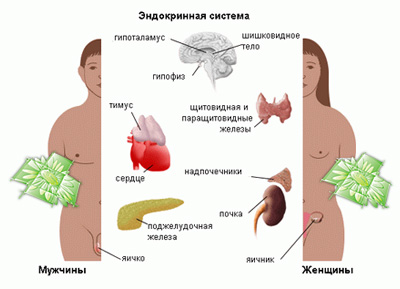This includes the study of the endocrine system of the body, the diagnosis and treatment of its pathologies, the elimination of disorders caused by these pathologies.
An endocrinologist is involved in the diagnosis, treatment and prevention of diseases of the endocrine system. What the endocrinologist does is directly related to the hormonal regulation of the body and any violations of this function.
This means that the endocrinologist treats not only diseases, but also their consequences: corrects hormonal balance, restores normal metabolism, eliminates sexual dysfunction, etc.
Subsections of Endocrinology
- Pediatric endocrinology is a section of endocrinology related to growth and sexual development problems, as well as related pathologies of the endocrine system in children and adolescents.
- Diabetology is a section of endocrinology devoted to the diagnosis, treatment and prevention of diabetes and its possible complications. Diabetology has become an independent discipline in connection with new discoveries in the study of diabetes. Diabetes mellitus is a complex chronic disease that requires a separate medical field for its treatment.
What organs does the endocrinologist treat?
- thyroid;
- The hypothalamus;
- shady body;
- pancreas;
- pituitary gland;
- adrenal glands.

What diseases does the endocrinologist treat?
- diabetes mellitus – a group of diseases caused by insulin hormone deficiency;
- disorders of calcium metabolism – increased or decreased serum calcium;
- endemic goiter – an increase in the thyroid gland due to a lack of iodine;
- autoimmune thyroiditis – inflammation of the thyroid gland of an autoimmune nature;
- diabetes insipidus – dysfunction of the hypothalamus or pituitary gland, accompanied by increased thirst;
- acromegaly – excessive production of growth hormone;
- Itsenko-Cushing’s disease is a neuroendocrine disease leading to impaired function of the adrenal cortex;
- disorders caused by pathologies of the endocrine system: osteoporosis, obesity, impaired sexual function, muscle weakness, neuropsychiatric abnormalities.
How is the examination with an endocrinologist
At the initial appointment, the endocrinologist:
- Gathers an anamnesis (medical history), learns from the patient about possible complaints.
- Conducts an examination and palpation (palpation) of the thyroid gland and lymph nodes, it is also possible to examine the genitals.
- It happens the heart, measures the pressure.
- Depending on the complaints and the results of the examination, the doctor may prescribe additional tests (ultrasound and MRI of the thyroid gland; CT scan of the thyroid gland; thyroid puncture, etc.)
When to go to the endocrinologist
If you try to summarize in which cases it is worth contacting an endocrinologist, you can distinguish the following situations:
- you often feel weak and tired for no apparent reason;
- you have trembling hands or feet;
- your menstrual cycle is irregular or your periods become excessively profuse or long;
- you feel a rapid heartbeat;
- it’s difficult for you to tolerate heat or cold or you have excessive sweating;
- you have increased or reduced weight;
- your appetite has deteriorated;
- you are often in a depressed mood for no obvious reason, there are problems with concentration;
- you are often worried about constipation, nausea, sleep disturbances;
- there are pains in the joints or bones;
- deteriorated condition of hair and nails;
- you suffer from infertility (male, female) of an obscure nature.
- All these cases are often symptoms of common endocrinological diseases: impaired production of thyroid hormones, excess or lack of calcium in the blood, or other hormonal pathologies.
Symptoms of Diabetes
The primary reasons for visiting an endocrinologist are symptoms that may indicate the development of diabetes:
- increased urination;
- the occurrence of itching of the mucous membranes and skin;
- frequent and intractable inflammatory skin lesions;
- frequent headaches, especially when you feel hungry;
- muscle weakness, increased fatigue;
- dry mouth, thirst;
- a sharp increase in appetite, especially in combination with weight loss;
- pain in the calves of the legs;
- visual impairment.
When to lead a child to an endocrinologist
- if your baby has weak immunity;
- if impaired growth and development, both physical and mental;
- pathologies of puberty appeared – subtle secondary sexual characteristics, overweight or underweight.
When to go to an endocrinologist for the first time
If you are not concerned about the above problems, you do not need to contact an endocrinologist in the order of a routine examination.
And in this case, you need to visit the endocrinologist for the first time:
- when planning a pregnancy;
- if you are already bearing a child – in the order of a routine examination;
- before selecting a contraceptive;
- with the onset of menopause in women – as a routine examination;
- upon reaching 45-50 years for representatives of both sexes, regardless of well-being – as a preventive examination. To control age-related changes should be contacted at least once a year.



